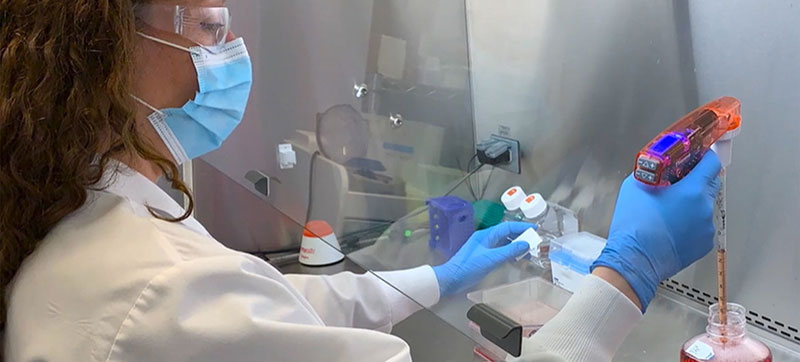 Regeneron
Regeneron
WHO backs Regeneron COVID-19 drug cocktail - with equal access, price cut
New York: The Regeneron antibody drug cocktail – casirivimab and imdevimab – has been added to the World Health Organization’s (WHO) list of treatments for COVID-19 patients, the UN agency said on Friday, before underscoring the need for lower prices and equitable distribution.
“This is a major breakthrough in the care of COVID-19 patients”, said Dr. Janet Diaz, WHO head of clinical care. “This is our first recommendation for a therapeutic for those patients with mild, moderate disease,” she said, because it reduces “the need for hospitalisation if they are at high risk”.
Effective ‘reduction in mortality’
WHO’s conditional recommendations are for use of the drug combination on patients who are not severely ill, but at high risk of being admitted to hospital with COVID-19, or those with severe cases of the disease and no existing antibodies.
“Giving them this additional antibody seems to show an effect. And what effect is that? A reduction in mortality” Dr. Diaz told a briefing in Geneva.
The antibody therapy was granted emergency use authorization in the United States November last year after it was used to treat former President Donald Trump when he was admitted to hospital with the virus. The United Kingdom has also approved Regeneron, while it is under review in Europe.
COVID-19 frontline workers wear personal protective equipment at a hospital in Thailand. (file), by UN Women/Pathumporn Thongking
‘Meaningful’ benefit
The WHO recommendations were largely based on data from a British study of 9,000 patients in June which found that the therapy reduced deaths in hospitalised patients whose own immune systems had failed to produce a response.
“We are taking the information (from the UK study) and generalizing it to other persons,” said Dr. Diaz. “We saw there was a benefit we thought was meaningful.”
The treatment has been on the market for decades to treat many other diseases, including cancers. It is based on a class of drugs called monoclonal antibodies which mimic natural antibodies produced by the human body to fight off infections.
Equity, price cut call
Swiss drugmaker Roche, has been working in partnership with Regeneron, which holds the patent, to produce the antibody treatment.
Dr. Diaz urged Regeneron to lower the drug’s price and work on equitable distribution worldwide: “We know that the life-saving benefits and the benefits for patients with COVID-19 is significant and requires action.”
She added that WHO-hosted health agency UNITAID, has been negotiating directly with Roche for lower prices and equitable distribution across all parts of the world, “including low and middle-income countries”.
WHO has also been in discussions with the company for a donation and distribution of the drug through UN Children’s Fund UNICEF, following an allocation criteria set by the health agency. “We are working together with the company so we can address these very important issues so we can have equitable access” she said.
Call to manufacturers
In a statement, WHO said in parallel it had “launched a call to manufacturers who may wish to submit their products for pre-qualification, which would allow for a ramping-up of production and therefore greater availability of the treatment and expanded access.
ACT-A partners are also working with WHO on an equitable access framework for recommended COVID-19 therapeutics”. On that subject, Dr Diaz added that “there are bottlenecks and we are aware of those.
WHO has launched the pre-qualification expression of interest call so that the manufacturing companies can start to submit their dossiers to WHO”.
Support Our Journalism
We cannot do without you.. your contribution supports unbiased journalism
IBNS is not driven by any ism- not wokeism, not racism, not skewed secularism, not hyper right-wing or left liberal ideals, nor by any hardline religious beliefs or hyper nationalism. We want to serve you good old objective news, as they are. We do not judge or preach. We let people decide for themselves. We only try to present factual and well-sourced news.







